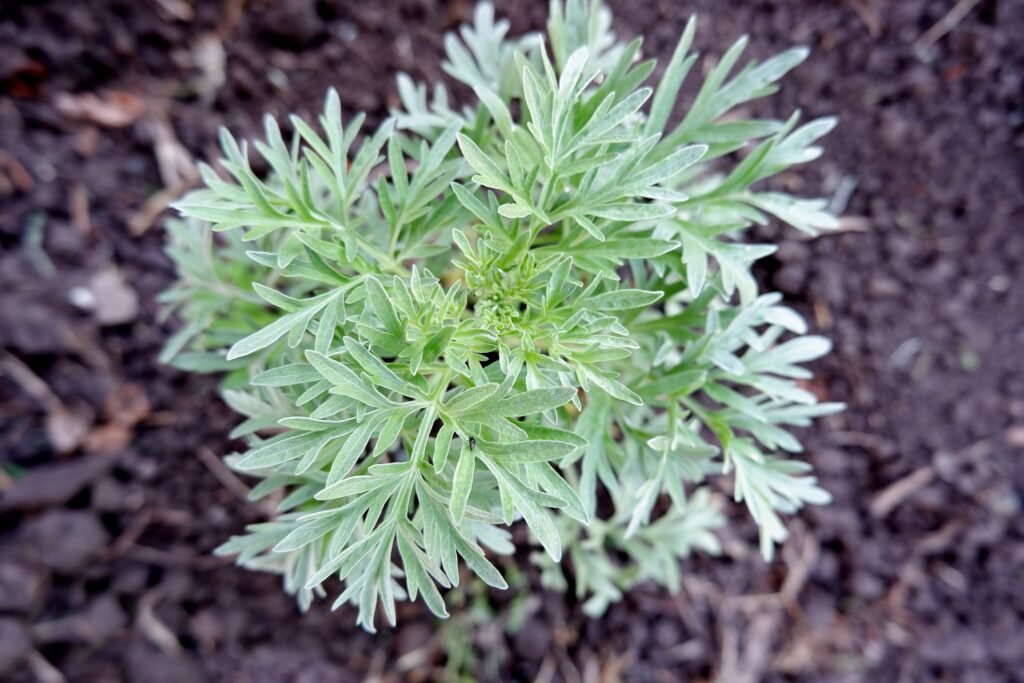Are wormwood and mugwort the same herb? This question pops up more often than you might think, and while the two herbs share some similarities, they are far from identical. Both wormwood and mugwort have been prized in traditional medicine for centuries, offering unique health benefits and spiritual uses. However, understanding the subtle yet significant differences between them can empower you to make informed decisions about which one is right for your specific needs.
If you’ve ever been intrigued by herbal remedies for digestive health, dream enhancement, or parasite cleansing, you’ve probably encountered wormwood and mugwort. Both herbs have deep roots in herbalism, folklore, and modern wellness practices. Despite their shared history, they have distinct properties, tastes, and applications that set them apart. Knowing when and how to use each herb can help you harness their full healing potential.
In this in-depth guide, we’ll explore the core differences between wormwood and mugwort. From their botanical characteristics and health benefits to when and why you should use each, this comparison will give you everything you need to know. By the end, you’ll be equipped to choose the herb that aligns best with your wellness goals.

Overview of Wormwood
Wormwood (Artemisia absinthium) is a perennial herb famous for its role in traditional medicine and its historical use in absinthe production. Recognized for its bitter taste and potent medicinal properties, wormwood has been a staple in herbal remedies for thousands of years.
Health Benefits of Wormwood
- Digestive Health – The bitter compounds in wormwood stimulate digestive enzymes, promoting better digestion and relieving symptoms like bloating, gas, and indigestion.
- Parasite Cleanse – Wormwood is one of the most well-known natural remedies for parasites. Its active compound, thujone, has antiparasitic properties that target intestinal parasites, making it a go-to herb for natural detoxification protocols.
- Anti-Inflammatory Properties – Wormwood contains antioxidants and anti-inflammatory compounds that may reduce inflammation, especially in conditions like rheumatoid arthritis.
- Pain Relief – Traditionally, wormwood has been used topically to relieve joint and muscle pain, thanks to its anti-inflammatory and analgesic properties.
- Immune Support – Due to its antimicrobial properties, wormwood may help the body combat bacterial and fungal infections.
Traditional Uses of Wormwood
Historically, wormwood was used in rituals to ward off evil spirits and protect the home. It was also burned as incense for purification purposes. In traditional Chinese medicine, it is a vital ingredient in “moxibustion,” a therapy where wormwood is burned to stimulate acupuncture points on the body.
Unique Properties of Wormwood
- Botanical Name: Artemisia absinthium
- Active Compounds: Thujone, flavonoids, and essential oils
- Taste: Very bitter, often requiring dilution or combination with other herbs
Overview of Mugwort
Mugwort (Artemisia vulgaris) is another member of the Artemisia genus, often confused with wormwood. While it shares some characteristics, mugwort has a distinct identity and a wider range of applications. Used for culinary, medicinal, and spiritual purposes, mugwort has a rich history in herbal traditions.
Health Benefits of Mugwort
- Digestive Health – Similar to wormwood, mugwort stimulates digestion, reducing bloating, indigestion, and nausea. It’s often consumed as a tea to aid in digestive relief.
- Sleep and Dreams – Mugwort is famous for its “dream-enhancing” qualities. Many people use mugwort as a sleep aid, burning it as incense or placing it under their pillows to promote vivid dreams and lucid dreaming experiences.
- Menstrual Health – Mugwort is a well-known herb for supporting women’s reproductive health. It can help stimulate menstruation, regulate cycles, and reduce menstrual pain.
- Nervous System Support – Mugwort is known for its calming effects on the nervous system, helping to reduce anxiety, stress, and mental fatigue.
- Antimicrobial Properties – Like wormwood, mugwort has antimicrobial and antifungal properties, helping protect against common infections.
Traditional Uses of Mugwort
Mugwort has been used in dreamwork and spiritual practices for centuries. It was believed to protect against evil spirits and provide prophetic visions during sleep. In culinary traditions, it has been used as a seasoning for meat and as an ingredient in certain beverages.
Unique Properties of Mugwort
- Botanical Name: Artemisia vulgaris
- Active Compounds: Cineole, flavonoids, and essential oils
- Taste: Earthy, mild bitterness, with an aromatic and pleasant flavor
Key Differences Between Wormwood and Mugwort
| Category | Wormwood (Artemisia absinthium) | Mugwort (Artemisia vulgaris) |
|---|---|---|
| Botanical Name | Artemisia absinthium | Artemisia vulgaris |
| Taste | Extremely bitter | Mild, earthy bitterness |
| Active Compounds | Thujone, flavonoids, essential oils | Cineole, flavonoids, essential oils |
| Primary Uses | Parasite cleanse, digestive health, pain relief | Sleep aid, dreamwork, menstrual support |
| Traditional Use | Moxibustion, absinthe production | Lucid dreaming, ritual protection |
| Health Benefits | Anti-parasitic, anti-inflammatory, pain relief | Nervous system support, menstrual health, digestive aid |
Which Should You Use?
When to Use Wormwood
If you’re looking for a powerful herbal ally for parasites, detoxification, or digestive support, wormwood is your best choice. The herb’s intense bitterness makes it an effective digestive stimulant, while its thujone content targets intestinal parasites. Wormwood may also support joint health and relieve muscle pain when used topically.
When to Use Mugwort
If dreamwork, sleep enhancement, or mental clarity are your goals, mugwort is your go-to herb. Its mild sedative effects and association with vivid dreams make it popular among dream enthusiasts. Women looking to regulate their menstrual cycles or ease menstrual cramps often turn to mugwort. It also offers a gentler digestive aid than wormwood.
Which One Should You Choose?
Your choice depends on your specific needs:
- For parasite cleanses and intense digestive support, choose wormwood.
- For dream enhancement, sleep support, or menstrual balance, choose mugwort.
- If you’re seeking a calmer, gentler option, mugwort may be preferable.
Side-by-Side Comparison Table
| Criteria | Wormwood | Mugwort |
|---|---|---|
| Primary Uses | Parasite cleanse, digestion, pain | Dreamwork, menstrual health |
| Taste | Extremely bitter | Mildly bitter, earthy |
| Sleep Support | No | Yes, promotes vivid dreams |
| Parasite Cleanse | Yes | No |
| Digestive Aid | Strong effect | Milder effect |
| Nervous System | No | Yes, calming effects |
| Best For | Parasites, digestion, pain relief | Dreams, mental clarity, periods |
Conclusion
Are wormwood and mugwort the same? Not at all. While these two herbs come from the same Artemisia family, they have distinct qualities that cater to different wellness needs. Wormwood stands out for its powerful role in parasite cleansing, digestion, and anti-inflammatory support. Its strong bitterness and thujone content make it a formidable tool in detoxification protocols.
On the other hand, mugwort shines in the realm of dreamwork, sleep enhancement, and menstrual health. This gentle, aromatic herb offers nervous system support and is a go-to for those seeking mental clarity and emotional calm. Unlike wormwood, it is less bitter and more versatile in culinary and ritual applications.
Whether you’re seeking better digestion, lucid dreams, or parasite protection, wormwood and mugwort each have something unique to offer. By understanding their key differences and complementary uses, you can tap into the rich healing potential of both. If you’re curious to explore these herbs further, consider adding them to your natural health toolkit. For in-depth guidance on herbal remedies, explore more of our expert resources on natural wellness.









